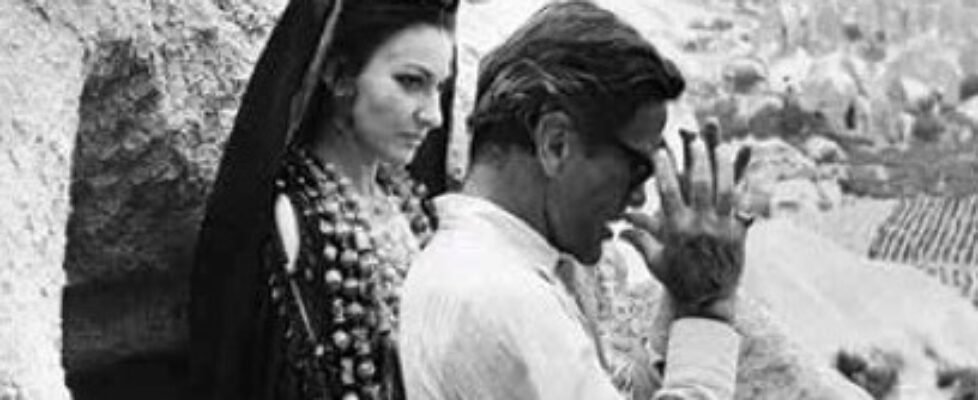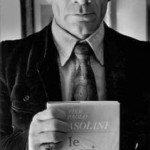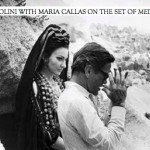A Vision Of Pasolini
A look at his multi-talents and legacy
Pier Paolo Pasolini is widely recognized as one of Italy’s most important cultural figures since the Second World War, producing a remarkable body of work since the 1940s, as a writer, poet, dramatist, and filmmaker – perhaps best known for such films as Accattone (1960) and Salò (1975), his classic novel A Violent Life (1955), and the remarkable poems found in The Ashes of Gramsci (1957).
He was also one of Italy’s most controversial voices – expressing himself as a gay, Catholic Marxist – in the heated intellectual debates that took place from the 1950s on, writing frequently for mainstream newspapers and magazines about current affairs in Italy and beyond. And in spite of his violent assassination in November of 1975 – a crime that to this day remains shrouded in some mystery – Pasolini has remained a huge presence in the cultural and political life of Italy.
Moreover, judging from the frequency of scholarly conferences devoted to his literary work and full-scale retrospectives of his films, held in major cities across the world – most recently, at the Museum of Modern Art in New York City in December of 2012 and at the British Film Institute in London in the spring of 2013 – Pasolini’s voice and influence surely extend across the globe. Nevertheless, the question of Pasolini’s legacy has proven to be complicated, and has found many diverse answers over the decades since his death. At symposia dedicated to Pasolini in the 1980s and 1990s, held in Toronto, Chicago, London, and elsewhere, the pessimistic leitmotiv running through discussions of Pasolini’s legacy was that he had no heirs – with possible exceptions of the filmmakers Sergio Citti, Marco Risi, or perhaps Nanni Moretti (who dedicated a remarkable episode of his 1993 film Dear Diary to Pasolini’s memory). Indeed, it was remarked that, for generations of filmmakers, writers and dramatists that came of age after his murder, the death of Pasolini represented the loss of any strong intellectual tradition against which to measure oneself intellectually and artistically. According to the Neapolitan film and theatre director Mario Martone, with the loss of Pasolini, the new generations of filmmakers emerging since the 1970s found themselves working in the absence of strong interlocutors – they were cultural orphans, cani sciolti, heirs awaiting an inheritance that was ever denied.
Indeed, it was in response to this sensation of aesthetic and intellectual orphanage that Martone undertook a major collective project of cultural and artistic renewal organized around Pasolini’s work. In 2003, Martone initiated a large project for the theatre in which he invited dramatists, actors, film and videomakers, photographers, and poets, to compose new works for live performance, based on Pasolini’s last, unfinished novel Petrolio. The Petrolio Project resulted in an ambitious program of performances held between November, 2003 and February, 2004, including work by a wide variety of artists and theatre groups, focusing on the sorts of political, environmental, and moral issues that concerned Pasolini the most, and inspired by Pasolini’s exemplary style of cultural engagement. Performances were held in various venues in Naples and environs. Significantly, however, Martone arranged for several of the performances to be held in the old Officina ItalSider plant at Bagnoli, a factory whose closure came to symbolize the process of de-industrialization in Italy since the 1970s – a process that troubled Pasolini greatly in so much of his work and continues to concern many, as the world experiences the challenging effects of economic globalization. The Petrolio Project clearly signaled the continuing importance of Pasolini’s message, and his presence – as a point of reference, an ethical foundation, an intellectual basis – for the next generations of writers and artists.
Other writers, poets, and filmmakers have likewise located themselves in a Pasolinian tradition of artistic engagement, now offering us reason for greater optimism than was once had with regard to Pasolini’s legacy. Certainly, in the cinema, Pasolini has paved the way for the exciting work of such Italian filmmakers as Bernardo and Giuseppe Bertolucci, Gianni Amelio, Nanni Moretti, Mario Martone, Daniele Cipri and Franco Maresco, Pappi Corsicato, Marco Tullio Giordana, Matteo Garrone, and Antonio Capuano; while outside Italy, Pasolini’s impact is readily discerned in the work of such internationally renowned filmmakers as Rainer Werner Fassbinder, Martin Scorsese, Derek Jarman, Gus Van Sant, and the later films of Jean-Luc Godard. His literary influence is also clearly discerned in the work of Roberto Saviano, Tiziano Scarpa, Aurelio Picca, Simona Vinci, Walter Siti and the late Elio Pagliarani (whose poems dedicated to Florence’s radical 15th Century cleric Savonarola’s sermons against greed and corruption were offered as a homage to Pasolini) – but the list of writers strongly influenced by Pasolini threatens become very long, indeed. And though often overlooked, Pasolini’s influence on the work of philosophers has been enormous, as seen clearly in the impact of his thought on Roland Barthes, Umberto Eco, Giorgio Agamben and, perhaps most of all, Gilles Deleuze, whose philosophy of cinema was developed in dialogue with essays Pasolini began to write about film starting in the 1960s. Certainly, it is safe to say that Pasolini remains a centrally important figure in the scholarly community worldwide, as reflected, for example, in the contributions found in the journal Studi pasoliniani and in the number of books published each year, throughout the world and in many languages, devoted to the Friulan poet and filmmaker. Thus, while it may not have been possible for commentators to discern the extent of Pasolini’s legacy twenty or so years ago, things now seem much clearer in this regard. It is largely on account of his literary writing and his impressive body of films – his continuing appeal to new generations of readers and spectators, and the central importance his work has attained for writers and filmmakers following after him – that we are able clearly to discern the challenging legacy that he has left to us, and one that will surely endure in spite of the violent elimination of this exemplary artist and thinker, assassinated in the prime of his life, whose work survives as an example of a hard-won and fiercely defended freedom.
About the Author
Patrick Rumble is Professor and Chair of the Department of French and Italian at the University of Wisconsin-Madison. He is the author of Allegories of Contamination: Pasolini’s Trilogy of Life (Toronto, 1996) and co-editor (with Bart Testa) of Pasolini: Contemporary Perspectives (Toronto, 1994). He is currently working on a book on the art cinema in Italy.



